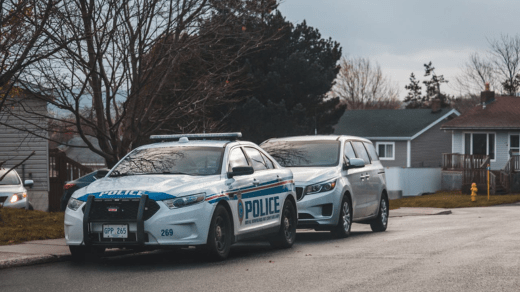In the chaotic aftermath of a car accident, it can be difficult to know what steps to take next. This is especially true if you find yourself in the state of Virginia, where laws and procedures may differ from other states. However, with some basic knowledge and preparation, managing a car accident in Virginia can be much more manageable. In this guide, we will cover everything you need to know about handling a car accident in the state of Virginia. From what to do at the scene to navigating insurance claims, we’ve got you covered.
How Difficult is the Situation of Being in an Auto Accident?
Being in a car accident can be a highly stressful and overwhelming experience. It may involve physical injuries, property damage, legal implications, and financial concerns. The situation can become even more challenging if you are in an unfamiliar state like Virginia.
In addition to the immediate challenges of dealing with the aftermath of the accident, you may also have to navigate through complex laws and procedures specific to Virginia. This adds another layer of difficulty to an already difficult situation.
However, it is important to remember that being in a car accident is not uncommon and many people have successfully managed it before you. By staying calm and following proper steps, you can effectively manage a car accident in Virginia.
What Are Your Legal Obligations After an Accident?
In Virginia, drivers are required by law to report any accident that involves injuries or property damage over $1,500 to the police. It is also recommended to exchange information with the other driver involved, such as names, contact information, and insurance details.
If there are no injuries or property damage over $1,500, you are not required by law to report the accident. However, it is still advisable to do so in case the other party decides to file a claim later on.
At the Scene of the Accident
The first and most important step in managing a car accident is to ensure everyone’s safety. If you or anyone else involved in the accident is injured, call 911 immediately. Even if there are no apparent injuries, it’s always best to seek medical attention as some injuries may not be immediately noticeable.
Next, move your vehicle out of the way of oncoming traffic if possible. This will help prevent additional accidents and keep everyone safe. Once you have moved your vehicle, turn on your hazard lights and set up emergency warning devices such as flares or cones to warn other drivers.
It’s crucial to exchange information with all parties involved in the accident. This includes names, contact information, driver’s license numbers, insurance information, and vehicle registration. Be sure to also document the make, model, and license plate number of all vehicles involved.
Dealing with Law Enforcement
In Virginia, it is required by law to report any accident that results in injury, death, or damage exceeding $1,500 to the police within 24 hours. If there are no injuries and the damage is minimal, you may not need to involve law enforcement. However, it’s always best to err on the side of caution and file a police report.
When speaking with law enforcement officers at the scene of an accident, be honest and provide only factual information. Do not admit fault or apologize, as this can be used against you in insurance claims. If possible, take photos of the accident scene to document any damage.
How to Handle Insurance Claims
Once you have dealt with the immediate aftermath of the accident, it’s time to start navigating insurance claims. In Virginia, drivers are required to carry minimum liability insurance coverage of $25,000 for injury or death of one person and $50,000 for two or more people. You will need to file a claim with your own insurance company if you were at fault for the accident or with the other driver’s insurance company if they were at fault.
Be sure to provide all necessary documentation and evidence when filing a claim. This includes the police report, photos of the accident, and any medical records or bills related to injuries sustained in the accident.
Consider Hiring a Lawyer
In some cases, it may be beneficial to seek legal representation after a car accident in Virginia. This is especially true if there were serious injuries involved or if there is a dispute over who was at fault for the accident. A lawyer can help navigate the complicated legal process and ensure you receive fair compensation for any damages or injuries. Bangel, Bangel & Bangel, L.L.P. is a car accident lawyer that has helped many clients in related cases and getting their insurance claims. They can do the same with you, so contact them if you need their help.
Being involved in a car accident can be a traumatic experience, but with the right knowledge and preparation, managing it in the state of Virginia doesn’t have to be overwhelming. Remember to prioritize safety at the scene of the accident and always follow state laws and procedures. Additionally, it’s important to seek medical treatment and document all necessary information for insurance claims. And if needed, don’t hesitate to seek legal assistance in navigating the process. By following these steps, you can effectively manage a car accident in Virginia with confidence and ease.
Finally, it’s important to take care of yourself after a car accident. Seek emotional support from loved ones or consider counseling if needed. It’s also helpful to keep track of any ongoing injuries or expenses related to the accident for potential future claims.
Remember that accidents happen, but by staying informed and prepared, you can handle them with more confidence and less stress. Drive safe, and always be prepared for the unexpected on the road. Stay informed on Virginia’s laws and regulations to ensure you are well-equipped in case of a car accident. Hopefully, you will never have to use this knowledge, but it’s always better to be prepared just in case. Overall, staying calm and following these tips can make managing a car accident in Virginia much easier to handle.
Additional Tips:
- Always keep a copy of your insurance card and vehicle registration in your car
- Familiarize yourself with Virginia’s traffic laws and regulations
- Consider investing in a roadside assistance program
- Take notes about the accident while it is still fresh in your mind
- Keep copies of all receipts and bills related to the accident for insurance purposes. Remember, you may be entitled to compensation for medical expenses and vehicle repairs.
- If possible, try to stay off social media after an accident as anything posted online can potentially be used against you in legal proceedings.
By following these additional tips, you can ensure that you are fully prepared and equipped to handle a car accident in Virginia with ease and efficiency. Stay safe on the roads! Happy driving!




